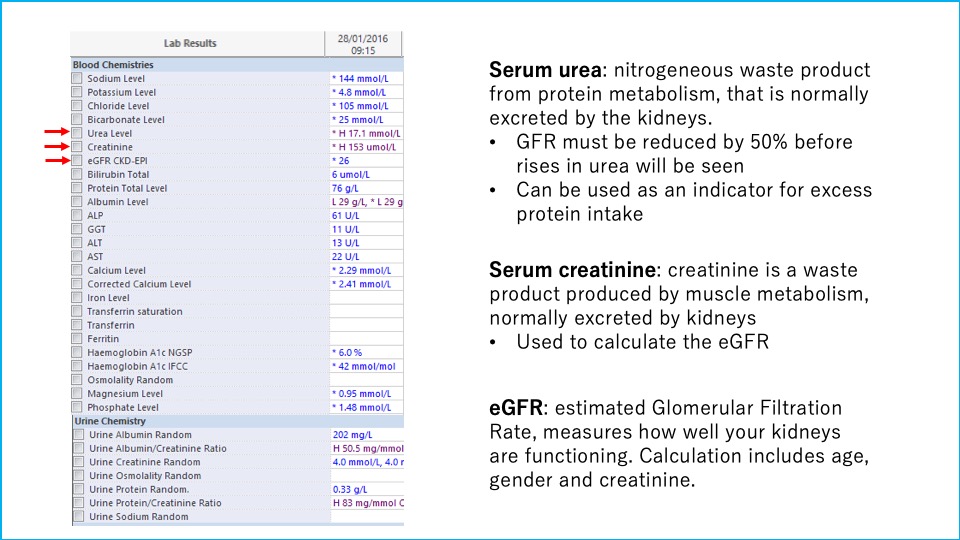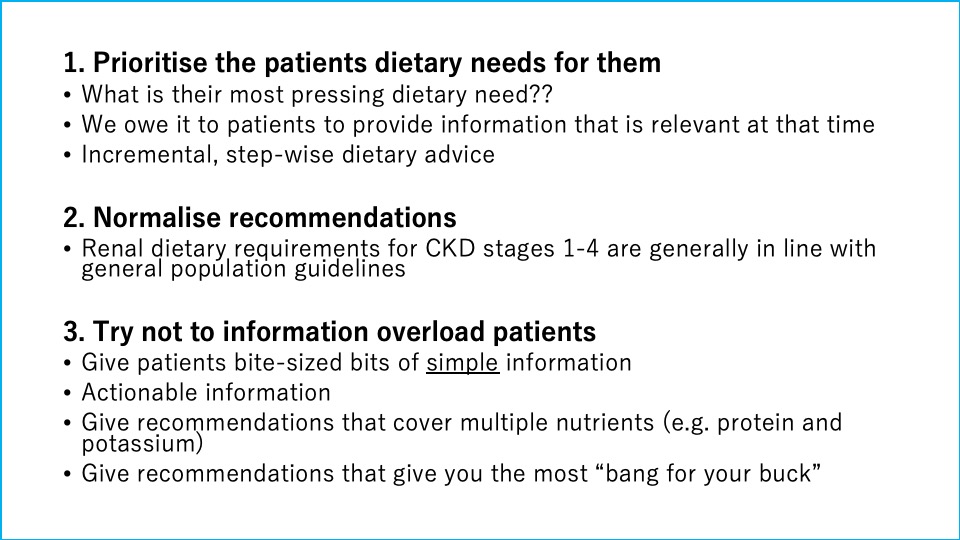Identifying and managing people with chronic kidney disease in primary care. Jessica Dawson, APD
How many clients do we see whose eGFR is under 90 and what should we be doing about it?
Chronic kidney disease is extremely common (around 10% of Australians and 12% of New Zealanders), and the progression to moderate to severe CKD (stage 4 -5) is increasing. Disturbingly, it is often not until kidney function has deteriorated into end-stage kidney disease (ESKD), that a diagnosis is made. ESKD results in a high health and economic burden for patients, families and communities. It usually requires kidney replacement therapy in the form of dialysis, or kidney transplantation, for patients to survive. Dietitians have an important role in identifying early stage kidney disease and working with patients and their doctors to prevent its progression into worsening renal failure.
In her presentation Jessica explains how we can identify CKD, and when we do, how we can help manage it.
Identification of CKD
- Stage 1 Normal kidney function eGFR >90
- Stage 2 Mild dysfunction eGFR 60-89
- Stage 3 Moderate dysfunction eGFR 30-59
- Stage 4 Severe dysfunction eGFR 15-29
- Stage 5 Kidney failure eGFR <15
Using lab results from a patient Jess takes us through the interpreting the most relevant biochemistry and urinalysis. What constitutes a significant result, and if there are any dietary changes which could alter the results.
She explains medications commonly used in managing CKD eg. For fluid overload, phosphate and potassium imbalances. As well as medications known to cause hyperkalaemia.
After our thorough assessment, Jess steps us through the processes of determining nutritional priorities and integrating dietary recommendations. She uses a case study to illustrate how she goes about this. A key point is not to overwhelm clients with too much information and jargon. Simple swaps can often have significant effects.


Jessica Dawson is an Accredited Practising Dietitian with extensive experience working in chronic kidney disease in Australia and the UK. Jess is passionate about enabling patient's to be able to self-manage their disease and is currently undertaking her PhD investigating the use of technology to support patient's dietary management in CKD. She has worked across all stages of CKD, including working in a nephrologist-led private practice. Jess is currently working in renal supportive care, a newly formed treatment pathway for people with end-stage kidney disease who are managed on a conservative, non-dialysis pathway.
To register for the presentation and associated documents including the assessment quiz click here